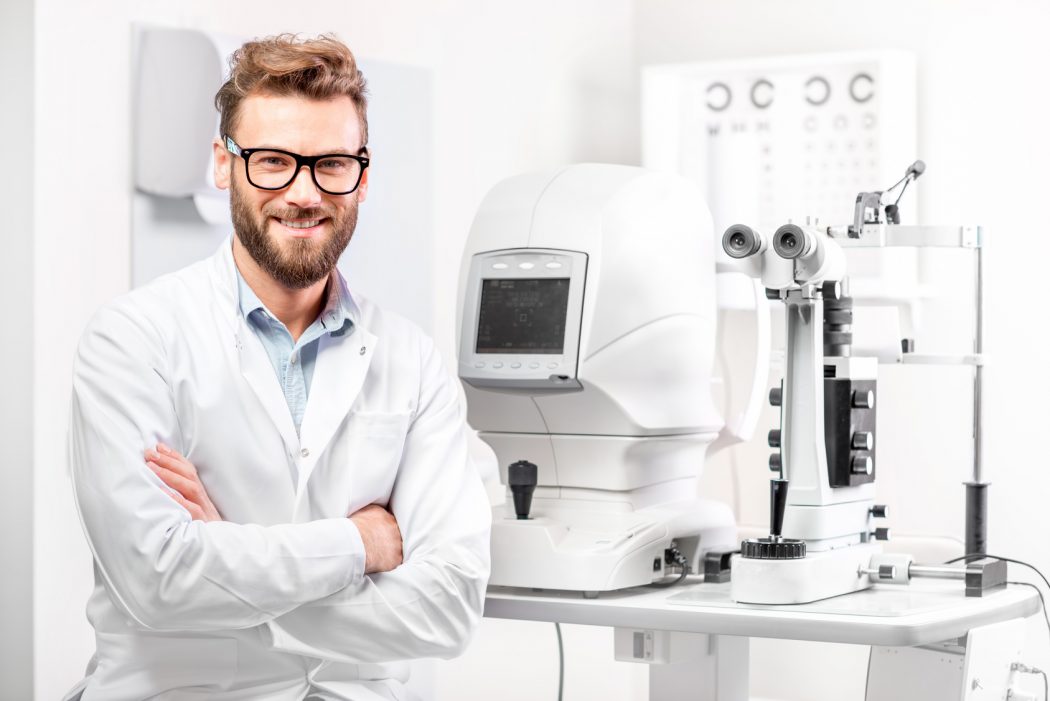Summary: There are three general types of eye doctors that can help you with your vision problems. Understanding which one is best suited for your personal needs is up to you. This guide will walk you through everything you need to know about your options.
When it’s time for your annual eye exam, you might be wondering which specialist you’re supposed to see. This guide is designed to break down all three types of eye care professionals so you can schedule an appointment with the right one.
Ophthalmologists
Ophthalmologists are medical doctors who specialize in caring for the eyes. In addition to performing your standard eye exam and handing out your prescription, they also perform eye surgery and are knowledgeable about the various medical conditions of the eye.
All ophthalmologists are required to complete medical school and undergo additional post-graduate training in medical and surgical eye care in order to practice.
Optometrists
Optometrists are eye doctors who specialize in diagnosing vision problems and are also able to treat medical conditions of the eye with drops or other types of medicines. They perform eye exams, prescribe contacts, glasses, low vision aids, and offer vision therapy to correct any problems. They can also treat most eye diseases with medications. However, they are trained to perform eye surgery.
Opticians
Opticians are in a different field than the aforementioned specialists. They are not eye doctors. They are eye care professionals who fit, adjust, and repair glasses. Moreover, opticians can also teach patients how to apply and remove contact lenses. Generally, these specialists receive their training either through apprenticeship or from technical school.
What You Should Bring to An Eye Exam
Now that you are able to differentiate one specialist from another, it’s time to set up your appointment. Make sure you bring information to your eye exam that informs your eye doctor about any risks you may have or vision problems. In particular, try and bring a list of any prescription medications you are currently taking or have taken in the past. This also include vitamins, herbs, and other non-traditional items you may have used.
If you are currently wearing glasses or eye contacts, bring all pairs of glasses that you wear on a routine basis.
If you wear contact lenses that were prescribed elsewhere or purchased from an online store like Lens.com for example, bring a copy of your most recent prescription that you received.
Also, it would benefit you to bring a copy of your vision insurance card and any other applicable medical insurance cards you have if you are looking to pay through insurance. This can save you a significant amount of money, especially because contact lenses and eyeglass frames are typically high in price.

